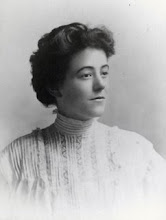On October 14, 1066 in a place now called Battle about 10 km north of Hastings on the English Channel the signal event in British history took place. It is among the dates we are likely to remember: 44 BC (Beware the Ides of March), 1066, 1215 (Runnymede and King John), 1492 (more significant for the expulsion of the Jews and Muslims from the Iberian Peninsula by Ferdinand and grisly Isabella), 1622, 1776.
The Normans (Northmen, Norsemen, Vikings) under William the Bastard, Duke of Normandy, routed the Anglo-Saxon aristocracy, killing Harold Godwinson, the King, in the process, and William was crowned on Christmas Day in Westminster Abbey. William in his own right had a somewhat tenuous claim to the throne of England because of blood ties to an earlier Anglo-Saxon king and because, while shipwrecked on the Normandy coast and taken prisoner, Harold Godwinson had sworn to support William’s bid upon the death of Edward the Confessor. The promise to back William gained Harold his release, but once back home Harold went about business as usual. Apologists for William refer to the subsequent “peace” among warring factions as justification for his incursion, and, of course, the imposition of continental culture, far more refined and civilized than that of England in the Eleventh Century.
Like another decisive onslaught across the English Channel about 900 years later, the weather delayed the launch of William’s fleet. During this time Harold Godwinson fought off another invasion in the north. When William finally landed in Sussex, site of Harold’s estate, he got right down to business pillaging and plundering. Word reached Harold, of course, and perhaps out of personal spite, he marched his battle worn army 250 miles in 9 days to meet the challenger, rather than waiting to restock his army. Even so, there was approximate parity in the number of troops, and Harold had the high ground, a strategic advantage.
William had raised troops from not only the Norman aristocracy, but from the German lowlands and most significantly from the second and third born sons of aristocratic Norman families who, by the law of primogeniture, were denied a title or land. William promised them such if he prevailed. He secured the backing of the Pope, Alexander II, (for those of you keeping score), his explicit blessing and also a gift of a banner, as was customary for a religious crusade.
 Papal banner from the Battle of Hastings
Papal banner from the Battle of Hastingsfrom a 2004 reenactment
David Howarth wrote a little book published in the mid 1980s entitled 1066: The Year of the Conquest. I gave it out as holiday tokens to my clients one year. It is short and very well written. It reconstructs what life would have been like for the people of England in the year 1066 against the backdrop of Titanic struggles transpiring among the nobility. I had taken my copy out to review it and misplaced it among the boxes and piles of papers that comprise my life at the moment. Hmmm. When I find it – and if I don’t, I’ll buy another copy – I’ll review it again.
Thanks to the Normans we have centralized government and the Domesday Book, a census, the first ever taken in England, and it is an invaluable record for genealogists and historians. According to Henry Adams in his book Mont Saint Michael and Chartres, if you have English blood, you have Norman blood. (I may have Norman ancestry via my Tindall, Copper and Purdy antecedents, but absolute proof is impossible.) Henry was an unapologetic aristocrat back when it was OK to claim one’s inherited superiority loudly. The Normans, despite the distasteful displays of arrogance and snobbery by some of their descendants (and Henry Adams was indeed a remarkable person and a superior intellect), were resolute, strong, shrewd, smart and civilized. But William’s foray was the very last successful raid upon English soil. May the record stand another 1000 years.
Go read this, too: Battle of Hastings vs. Hasty Battles by Elaine Meinel Supkis


2 comments:
I bought the Henry Adams book wqhen I was in college - about 1972. I was taking Medieval art history. I had wanted to blog for old Archangel Michael tomorrow (Sunday), because it's his day. My vocabulary right now consists of about 5 words, all of them vulgar. Possibly a glass of wine later on tonight ... a bottle with a straw?
Very nice images!
Post a Comment